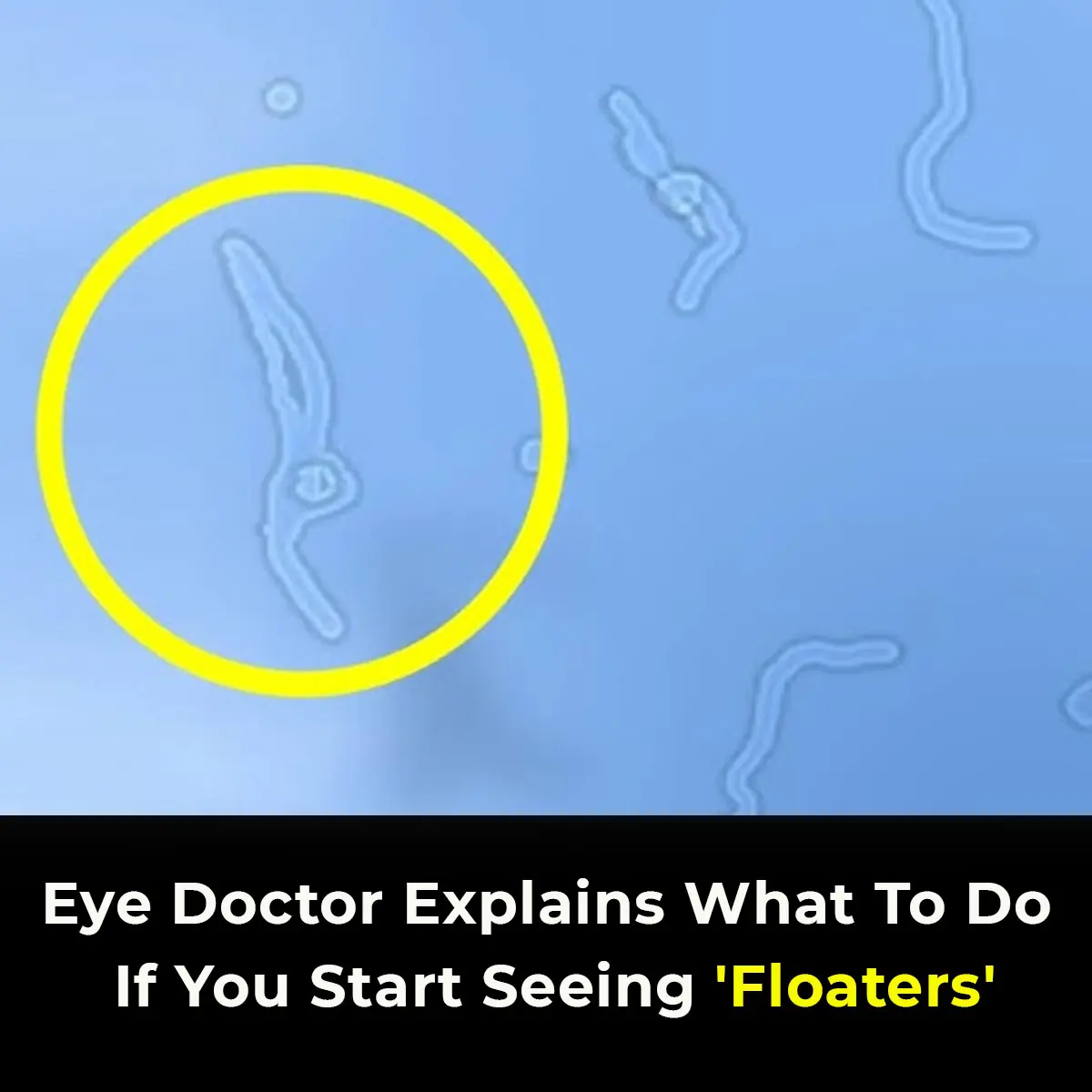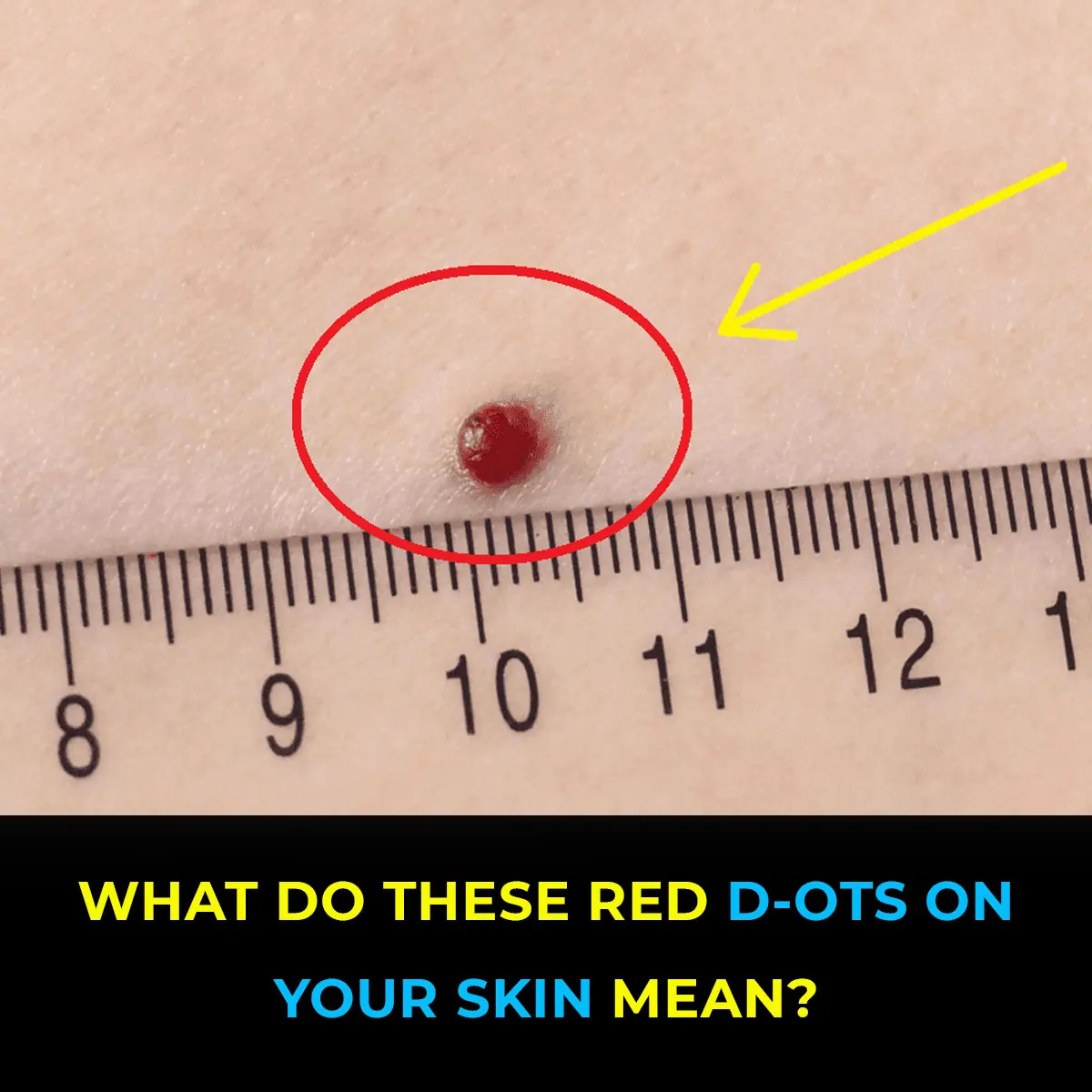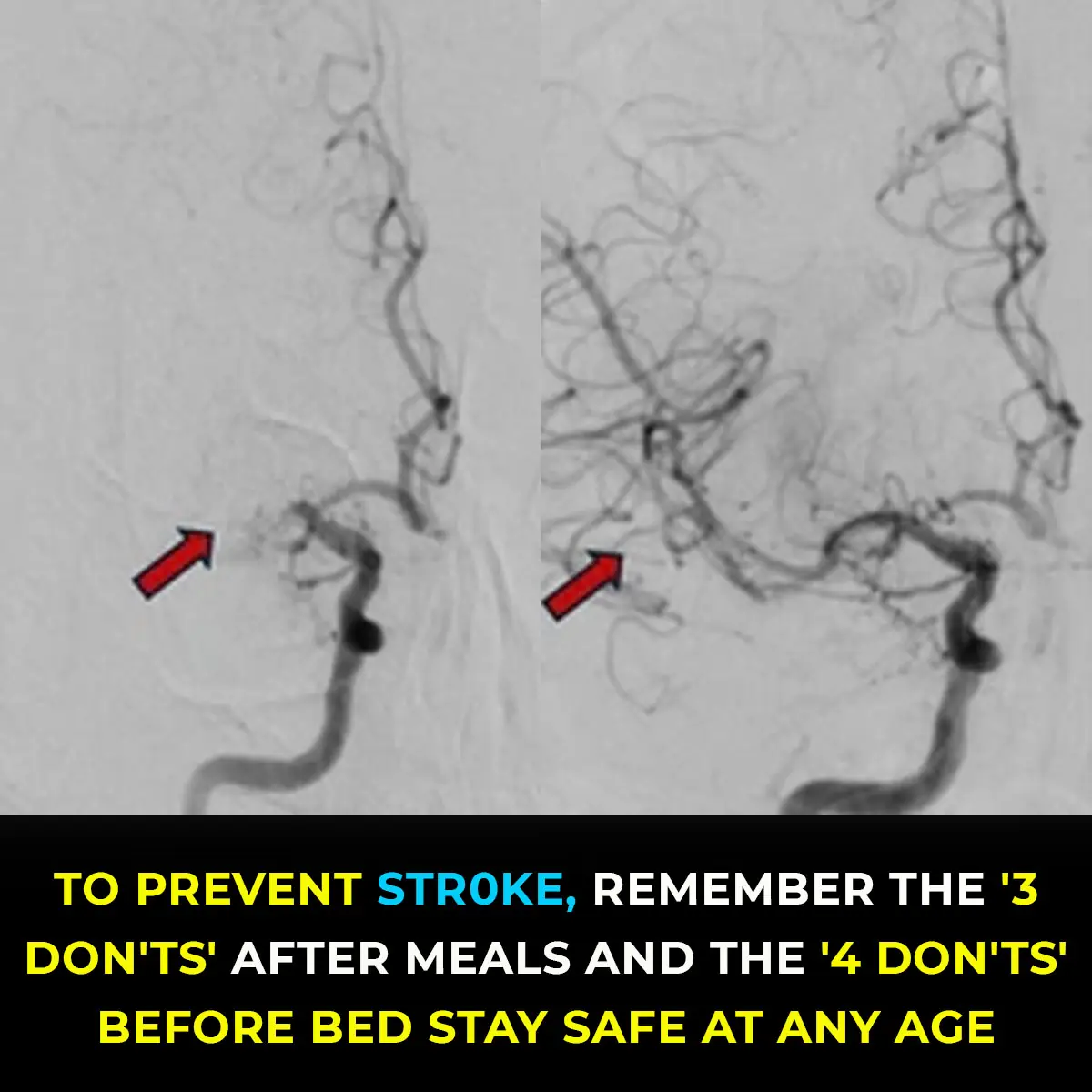
What Are Eye Floaters? Here What To Do If you Start Seeing Them, According to an Eye Doctor

Eye floaters are a common yet often misunderstood visual phenomenon. They can appear as squiggly lines, spots, or cobweb-like shapes that drift across your vision, and while they may be alarming at first, they are usually harmless. Understanding their causes and knowing when to seek medical attention is essential. Here’s what experts recommend for managing floaters.
What Are Eye Floaters?
Eye floaters are small shapes that seem to move across your field of vision. These might appear as spots, threads, or squiggly lines, and they are most noticeable when looking at bright backgrounds like a clear sky or a white wall. As you move your eyes, the floaters move too, often darting away when you try to focus on them.
What Causes Eye Floaters?
Floaters are usually caused by age-related changes in the vitreous, the gel-like substance inside your eye. As we age, the vitreous becomes more liquid, and tiny fibers within it can clump together, casting shadows on the retina. These shadows are perceived as floaters.
However, floaters can also be associated with more serious conditions, including:
-
Eye infections
-
Uveitis (inflammation within the eye)
-
Retinal tears or detachment
Who Is Most at Risk?
Certain individuals are more likely to experience floaters. You may be at higher risk if you:
-
Are nearsighted
-
Have undergone cataract surgery
-
Suffer from diabetes, which can cause diabetic retinopathy
-
Are aging
Symptoms to Watch For
In most cases, floaters are harmless, but if you notice a sudden increase in their number, experience flashes of light, or see a shadow in your peripheral vision, it could indicate a retinal tear or detachment. These are urgent conditions that require immediate medical attention.
How Are Floaters Diagnosed?
Eye doctors typically use a dilated eye exam to diagnose floaters. This exam involves using eye drops to dilate your pupils, allowing the doctor to have a clearer view of your vitreous and retina. The exam helps identify any abnormalities, such as retinal tears.
When Are Floaters a Medical Emergency?
Although most floaters are benign, certain symptoms could indicate serious issues:
-
A sudden increase in floaters
-
Flashes of light
-
A dark curtain or shadow appearing across your vision
These signs may suggest retinal detachment or a tear, which needs immediate treatment to prevent permanent vision loss.
Treatment Options for Floaters
In many cases, no treatment is needed, as floaters often become less noticeable over time. However, if floaters significantly affect your vision, there are treatment options available:
-
Vitrectomy: A surgical procedure that removes the vitreous gel and replaces it with a saline solution.
-
Laser Therapy: This procedure uses lasers to break up floaters, making them less noticeable. Both treatments carry risks, such as infection and retinal damage, and are usually considered only for severe cases.
Lifestyle Tips for Managing Floaters
If your floaters are mild, certain lifestyle changes may help you manage them:
-
Eye exercises: Moving your eyes up and down can shift floaters out of your line of sight.
-
Diet and supplements: A diet rich in omega-3, vitamin A, and zinc can support overall eye health.
-
Avoid smoking: Smoking can worsen eye issues and hinder overall eye health.
Preventative Measures and Long-Term Outlook
While floaters are often a natural part of aging, regular eye check-ups are crucial for detecting potential problems early. Dr. Rick Ansorge advises, "If you experience sudden changes in your vision, seek medical advice promptly."
For most people, floaters are a benign annoyance. However, staying informed and proactive ensures your eyes remain healthy for years to come. By understanding eye floaters and their causes, you can better manage this common condition and protect your vision. Regular check-ups and awareness of possible symptoms are your best defense against more serious eye health concerns.
News in the same category


Study Links Fries, but Not Other Forms of Potato, With Diabetes

How to Lower High Blood Pressure Quickly Without Medications (Evidence Based)

Why You Should Start Using Coconut Oil as a Toothpaste

20 Early Cancer Signs You Should Never Ignore

5 Warning Signs That Could Indicate Colon Cancer

Shocking simulation shows exactly what happens to your body if you stop eating sugar for 2 weeks
Giving up sugar for two weeks may sound like a simple diet tweak, but a new simulation shows the change can trigger a chain reaction inside your body — from energy surges to mental clarity. The journey isn’t without its challenges, but the long-term r

11 Sh0cking Causes of Red Dots on Your Skin and How to Treat Them
While some red dots on your skin may resolve on their own or with simple remedies, others can and should require medical attention.

Healing Power of Castor Leaves: Natural Benefits and Must-Know Safety Tips

Here’s Why You Shouldn’t Sleep With A Fan At Night
Sleeping with a fan might seem harmless — even comforting — but its hidden effects can chip away at your comfort and long-term sleep quality.

36-Year-Old Teacher D!es From Diabetes Caused by Common Foods, Experts Say
Diabetes is a serious health condition with long-term consequences if left unmanaged.

Finger Test For Lung Cancer Could Determine Cancer Risk
While finger clubbing itself is a symptom rather than a disease, adopting healthy lifestyle habits can help reduce the risk of underlying conditions that cause it.

The Ultimate Guide to Cloves: Benefits, Uses, and How They Work
Cloves aren’t just a fragrant kitchen spice — they’re a centuries-old natural remedy packed with healing power. From boosting immunity to easing pain, these tiny buds hold surprising benefits you can easily tap into at home.

11 Reasons Why You Have Red Dots On Your Skin

Common Backyard Plant May Help Fight Tumors, Diabetes, And High Blood Pressure

Over 200 People Are Killed By The “World’s Deadliest Food” Every Year, But Almost 500 Million People Still Eat It

Men Who Neglect This Crucial Practice Face 45% Higher Risk of Prostate Cancer

Preventing Stroke At Any Age: 3 “Don’ts” After Meals—And 4 “Don’ts” Before Bed

Revolutionary HIV Treatment: Lenacapavir Achieves 100% Clinical Efficacy
News Post

Woman is diagnosed with cancer — believes a popular sandwich is to blame
When investigative journalist Lucie Morris-Marr was told she had stage-four bowel cancer, she was at the peak of her personal and professional life. Now, she’s speaking out about a hidden dietary danger she believes more people need to take seriously

8 Potential Health Benefits of Nuts

Study Links Fries, but Not Other Forms of Potato, With Diabetes

How to Lower High Blood Pressure Quickly Without Medications (Evidence Based)

Why You Should Start Using Coconut Oil as a Toothpaste

20 Early Cancer Signs You Should Never Ignore

7 Signs That Your Partner Isn’t In Love And Is Just Settling For You

5 Warning Signs That Could Indicate Colon Cancer

Nurse reveals the 4 final phrases she hears people say before they die
A veteran hospice nurse has shared the deeply moving — and sometimes surprising — last phrases she’s heard from patients in their final moments. Her insights reveal that real-life goodbyes are far from the dramatic Hollywood scenes we’ve come to e

Shocking simulation shows exactly what happens to your body if you stop eating sugar for 2 weeks
Giving up sugar for two weeks may sound like a simple diet tweak, but a new simulation shows the change can trigger a chain reaction inside your body — from energy surges to mental clarity. The journey isn’t without its challenges, but the long-term r

11 Sh0cking Causes of Red Dots on Your Skin and How to Treat Them
While some red dots on your skin may resolve on their own or with simple remedies, others can and should require medical attention.

Never store your cooked rice without knowing this
Leftover rice may seem harmless, but if stored the wrong way, it can quickly become a breeding ground for dangerous bacteria. Experts warn that this common mistake, known as “fried rice syndrome,” can cause serious foodborne illness within hours.

Healing Power of Castor Leaves: Natural Benefits and Must-Know Safety Tips

Here’s Why You Shouldn’t Sleep With A Fan At Night
Sleeping with a fan might seem harmless — even comforting — but its hidden effects can chip away at your comfort and long-term sleep quality.

36-Year-Old Teacher D!es From Diabetes Caused by Common Foods, Experts Say
Diabetes is a serious health condition with long-term consequences if left unmanaged.

Finger Test For Lung Cancer Could Determine Cancer Risk
While finger clubbing itself is a symptom rather than a disease, adopting healthy lifestyle habits can help reduce the risk of underlying conditions that cause it.

The Ultimate Guide to Cloves: Benefits, Uses, and How They Work
Cloves aren’t just a fragrant kitchen spice — they’re a centuries-old natural remedy packed with healing power. From boosting immunity to easing pain, these tiny buds hold surprising benefits you can easily tap into at home.

Many People Still Think That These 2 Buttons Are Just For Flushing
